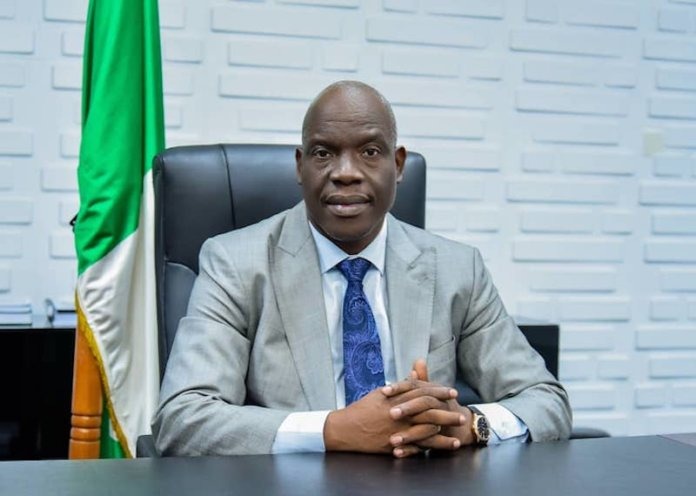Nigeria’s Ambitious Oil Revenue Projections for 2025
Nigeria is setting its sights on a substantial increase in oil revenue for the year 2025, projecting a staggering N84.67 trillion (approximately $56.45 billion) from crude oil sales. This ambitious target hinges on a projected production of 2.062 million barrels per day (mbpd) throughout the year, translating to roughly 752.63 million barrels annually, and an anticipated selling price of $75 per barrel. These figures, based on an average exchange rate of N1,500 to the dollar, represent a significant leap from the N50.88 trillion generated in 2024, a year where production fell short of the budgeted target of 649.7 million barrels. The Nigerian Upstream Petroleum Regulatory Commission (NUPRC) has outlined a strategic roadmap to achieve this ambitious goal, focusing on bridging the existing production gap of 350,000 barrels per day.
The NUPRC Chief Executive, Gbenga Komolafe, emphasized the importance of collaborative efforts across the industry to address existing challenges and boost overall performance. Given Nigeria’s continued heavy reliance on oil revenues, achieving these production and revenue targets holds significant weight for the nation’s economic outlook. Komolafe highlighted recent successes, including a 1.45% growth in national oil reserves and a substantial 26% increase in oil production between April 2023 and November 2024. These achievements, combined with a significant reduction in oil theft and production deferments exceeding 40%, are attributed to enhanced cooperation with security agencies. This progress lays a foundation for optimism, but further concerted efforts remain crucial to attaining the ambitious 2025 targets.
The NUPRC’s strategic initiatives for 2025 are multifaceted, focusing on boosting production, enhancing regulatory efficiency, and fostering sustainability. Central to this strategy is the implementation of the "Million Barrels Per Day Incremental Production Initiative," aiming to significantly increase output. This is complemented by efforts to enhance the accuracy of hydrocarbon measurement through dedicated metering regulations and the digitization of upstream regulatory activities. This digitization aims to improve compliance and operational efficiency, ultimately contributing to cost optimization and increased federal revenue. Further initiatives include conducting licensing bid rounds to reactivate dormant assets and bring them into production, thereby expanding the nation’s active oil production capacity.
Beyond increasing production, the NUPRC is also prioritizing sustainability and the reduction of the carbon footprint of upstream operations. This aligns with the broader goal of positioning Nigeria as a leading energy hub in Africa. A tangible step towards this objective is the provision of a facility in Abuja to host the Africa Energy Bank. This initiative is expected to stimulate job creation and provide vital financial support for businesses operating within the oil and gas sector. This commitment to sustainability signals a forward-thinking approach to energy development, recognizing the increasing importance of environmental responsibility in the global energy landscape.
The projected leap in oil revenue from N50.88 trillion in 2024 to N84.67 trillion in 2025 represents a substantial increase and underscores the significance of the NUPRC’s strategic initiatives. Achieving this target relies on a concerted effort to overcome existing challenges and effectively implement the planned strategies. Factors such as global oil price fluctuations, security concerns related to oil theft and pipeline vandalism, and the ability to attract investment in the sector will play a crucial role in determining the ultimate success of these ambitious plans. The Nigerian government’s commitment to fostering a conducive regulatory environment that promotes growth, innovation, and global competitiveness in the upstream petroleum sector will be paramount to achieving these goals.
The outlined strategy underscores a balanced approach that seeks to maximize oil production while also addressing environmental concerns and positioning Nigeria as a key player in the African energy landscape. The success of these initiatives will be critical not only for the nation’s economic prosperity but also for its long-term energy security and its role within the broader African energy market. The coming year will be a crucial test of Nigeria’s ability to deliver on its ambitious targets and solidify its position as a significant energy producer on the continent. The NUPRC’s focus on collaboration, innovation, and sustainability will be crucial factors in determining the ultimate outcome of this ambitious endeavor.


